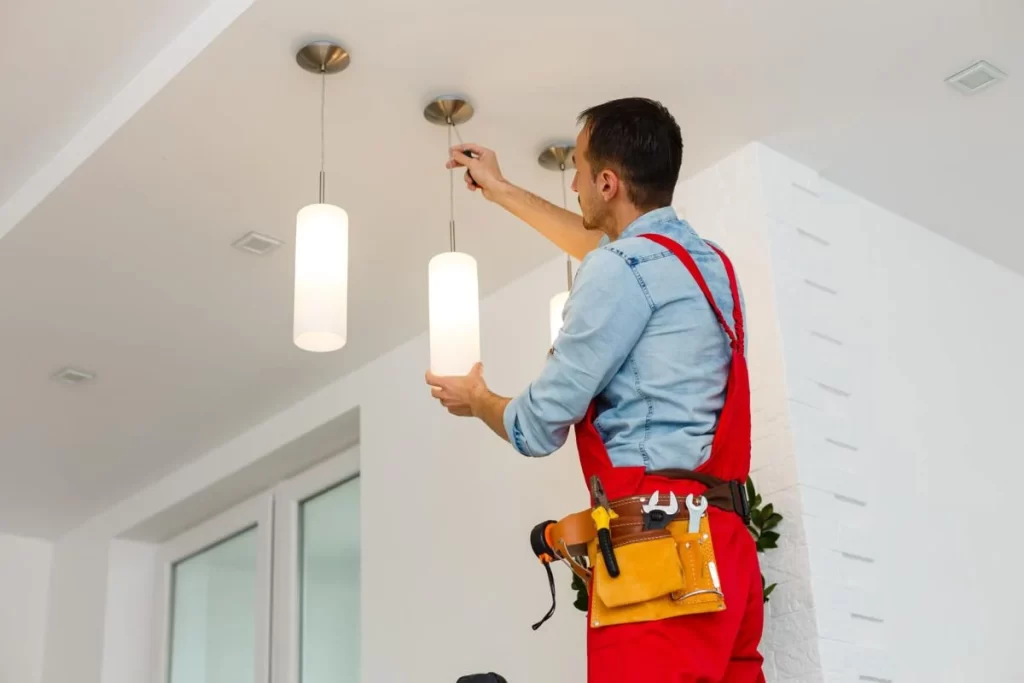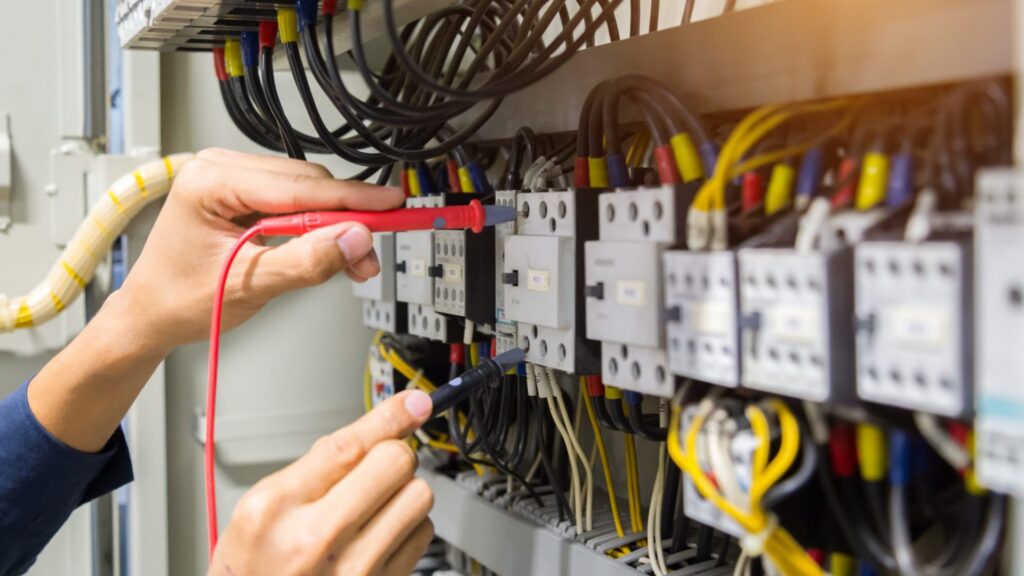Planning a home renovation in Ontario, Canada? Understanding electrical permit requirements is crucial to ensure safety, compliance, and avoid legal troubles. Whether you’re upgrading your electrical system, installing a generator, or tackling a major remodel, knowing when you need a permit can save you time, money, and stress.
At Lifetime Building Services, we prioritize safety and compliance, making sure all electrical work aligns with the Canadian Electrical Code and local regulations. Let’s break down everything you need to know about electrical permits and how to obtain one seamlessly.

What is an Electrical Permit?
An electrical permit is an official authorization that allows homeowners and contractors to legally perform electrical work. This permit ensures that all installations, repairs, and modifications adhere to national and local codes, reducing risks like electrical fires, shocks, and property damage.
If you’re building a new home, upgrading your electrical panel, or installing solar panels, an electrical permit is typically required to ensure the work is done safely and correctly.
When is an Electrical Permit Required?
Most home renovations involving electrical work require a permit. Here are some common scenarios where one is needed:
1. New Construction & Major Renovations
- When building a new home or adding an extension, an electrical permit is mandatory to ensure safe wiring and compliance with building codes.
- Major renovations, such as kitchen remodels, basement finishing, or bathroom upgrades, require permits if they involve new wiring or circuits.
2. Electrical Panel & Service Upgrades
- Upgrading your electrical panel (e.g., increasing amperage) requires a permit to ensure the system can handle the increased load safely.
- Changing an electrical panel without a permit can lead to fines and safety hazards.
3. Generator & Solar Panel Installation
- Installing a backup generator or solar panels requires an electrical permit to ensure proper integration with your home’s electrical system.
4. Hot Tub & Pool Wiring
- Any electrical work related to pools, hot tubs, pumps, heaters, or lighting needs a permit to prevent electrical hazards.
5. EV Charging Stations
- Installing a home EV charging station often requires an electrical permit to ensure safe operation.
How to Get an Electrical Permit in Ontario, Canada
The process may vary slightly depending on your province or municipality, but here’s a step-by-step guide to obtaining an electrical permit:
1. Determine the Scope of Work
- Outline your project details, including the type of electrical work being done.
- If unsure, consult a licensed electrician to clarify permit requirements.
2. Check Local Regulations
- Permit requirements vary by location, so check with your local building or electrical authority to confirm specific rules.
3. Prepare Documentation
- Gather necessary documents like electrical diagrams, project plans, and contractor details (if applicable).
- If hiring an electrician, ensure they are licensed and qualified for the work.
4. Submit the Permit Application
- Apply through your local municipality’s building department or online portal, if available.
- Provide accurate project details to avoid delays.
5. Pay the Permit Fee
- Fees vary based on project scope and location. Check with your local authority for exact pricing.
6. Receive Approval & Display the Permit
- Once approved, display the permit at the job site as required by local laws.
7. Schedule Inspections
- Inspections are usually required at different stages of the project (e.g., rough-in, final inspection).
- Electrical inspections ensure that work complies with safety standards.
- If corrections are needed, address them promptly and schedule a follow-up.
8. Final Approval
- Once your electrical work passes inspection, you’ll receive final approval confirming compliance with safety standards.

Where to Apply for an Electrical Permit?
In Ontario, Canada, electrical permits are issued by municipal, regional, or provincial authorities. Here’s where to apply based on your location:
- Municipal Building Departments: Most homeowners apply through their city or town’s building department.
- Online Portals: Many municipalities offer online applications for convenience.
- Regional District Offices: In rural areas, regional offices may oversee permit issuance.
- Provincial Agencies: Some provinces, like British Columbia, handle permits through organizations such as Technical Safety BC.
- Utility Companies: If your project involves service upgrades, check with your local electricity provider for additional permit requirements.
How Long Does It Take to Get an Electrical Permit?
Processing times vary based on the project type and application volume. Here’s what to expect:
- Small projects (e.g., minor installations): 1-3 business days
- Moderate projects (e.g., panel upgrades, small remodels): 3-10 business days
- Large projects (e.g., new builds, major renovations): 2-6 weeks
Tip: Apply early to avoid delays, especially during peak seasons (spring & summer).
Why Electrical Permits Matter
Getting an electrical permit isn’t just a formality, it’s essential for safety and compliance. Here’s why it matters:
- Ensures Safety: Reduces the risk of electrical fires, shocks, and faulty wiring.
- Legal Compliance: Helps you avoid fines and ensures work meets Canadian Electrical Code standards.
- Protects Home Valu: Properly permitted work boosts property value and reassures future buyers.
- Insurance Coverage: Many insurers require permitted work for valid claims.
Final Thoughts: Stay Safe & Compliant
Navigating electrical permit requirements might seem overwhelming, but following the right steps ensures your project is safe, legal, and up to code.
At Lifetime Building Services, we handle the entire permit process, making renovations stress-free. Whether you’re upgrading your home’s electrical system, installing solar panels, or remodeling your space, we ensure every step meets Canadian safety standards.
Need help with your electrical project? Contact us today and let’s make your renovation a success!

FAQs About Electrical Permits in Ontario, Canada
What happens if I don’t get an electrical permit?
- You could face fines, fail inspections, and run into insurance & resale issues.
Can I apply for a permit myself, or do I need an electrician?
- Homeowners can apply, but hiring a licensed electrician ensures compliance and a smoother process.
How much does an electrical permit cost?
- Costs vary, ranging from a small fee for minor work to several hundred dollars for major projects. Check with your municipality.
- The cost to upgrade an electrical panel in GTA, Canada depends on factors like panel size and installation complexity.
What electrical work can be done without a license?
- In some cases, homeowners can do minor repairs, but rules vary by province.
What should I expect during an inspection?
- Inspectors will review wiring, connections, and compliance with approved plans. If issues arise, you must correct them before approval.
How long is a permit valid?
- Most permits last 6-12 months. If your project isn’t completed within this timeframe, you may need an extension or new permit.
